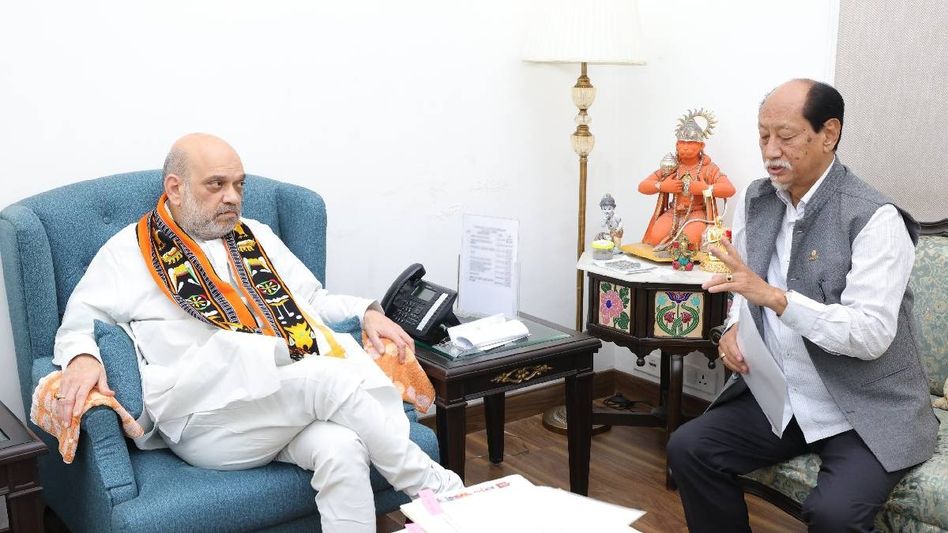Nagaland awaits Amit Shah’s response on all-party delegation meet over Naga political issue: CM Rio
The Nagaland government is currently awaiting a response from Union Home Minister Amit Shah regarding a proposed meeting with an all-party delegation to discuss the longstanding Naga Political Issue and the ongoing concerns surrounding the Free Movement Regime (FMR) with Myanmar, Chief Minister Neiphiu Rio said on Saturday.

The Nagaland government is currently awaiting a response from Union Home Minister Amit Shah regarding a proposed meeting with an all-party delegation to discuss the longstanding Naga Political Issue and the ongoing concerns surrounding the Free Movement Regime (FMR) with Myanmar, Chief Minister Neiphiu Rio said on Saturday.
Speaking to reporters on the sidelines of a public event, Rio informed that he had recently proposed, during a state assembly session, that an all-party team meet Shah to apprise him of the political sensitivities and implications linked to the Naga issue and the FMR policy, which allows border-area residents to move freely between India and Myanmar.
The Chief Minister noted that during the North Eastern Council (NEC) meeting held in Guwahati, he had raised the matter directly with Shah. "He [Shah] told me he would find a suitable time and call us. So we are waiting for that," Rio said.
When asked if the state government intended to meet with Naga political groups, Rio affirmed that engagement has been ongoing. “We have been meeting and putting forward our views since they signed the Framework Agreement and the Agreed Position,” he said.
The Framework Agreement was signed between the Centre and the NSCN (Isak-Muivah) in 2015, and the Agreed Position was signed with the Working Committee of Naga National Political Groups (WC NNPGs) in 2017. Despite these agreements, a final resolution remains elusive, with key issues still unresolved.
“They must be waiting for the outcome of the agreements they signed,” Rio added, expressing cautious optimism that a final solution, which is inclusive and acceptable to all, can be achieved.
Rio declined to comment on the recent internal split within the WC NNPGs following the impeachment of convenor Kitovi Zhimomi, but stressed that further divisions among Naga groups should be avoided. He reiterated the government’s current policy of ‘equi-closeness’, as opposed to the earlier stance of ‘equi-distance.’
“We’ve adopted a policy of equal closeness with all groups… That is a positive approach from our side, but the negotiations are ultimately up to them,” he stated
The peace process with Naga groups formally began with a ceasefire agreement in 1997 between the Government of India and the NSCN (IM), followed by over 70 rounds of talks. The Framework Agreement in 2015 marked a major milestone, though the NSCN’s persistent demand for a separate Naga flag and constitution has not been accepted by the Centre.
To broaden the dialogue, the Centre entered parallel negotiations with the WC NNPGs, a coalition of seven Naga groups, in 2017. While the WC NNPGs have shown a willingness to compromise and continue discussions on remaining issues, the NSCN (IM) has maintained its hardline stance, refusing to settle without the symbolic guarantees.
Copyright©2025 Living Media India Limited. For reprint rights: Syndications Today









